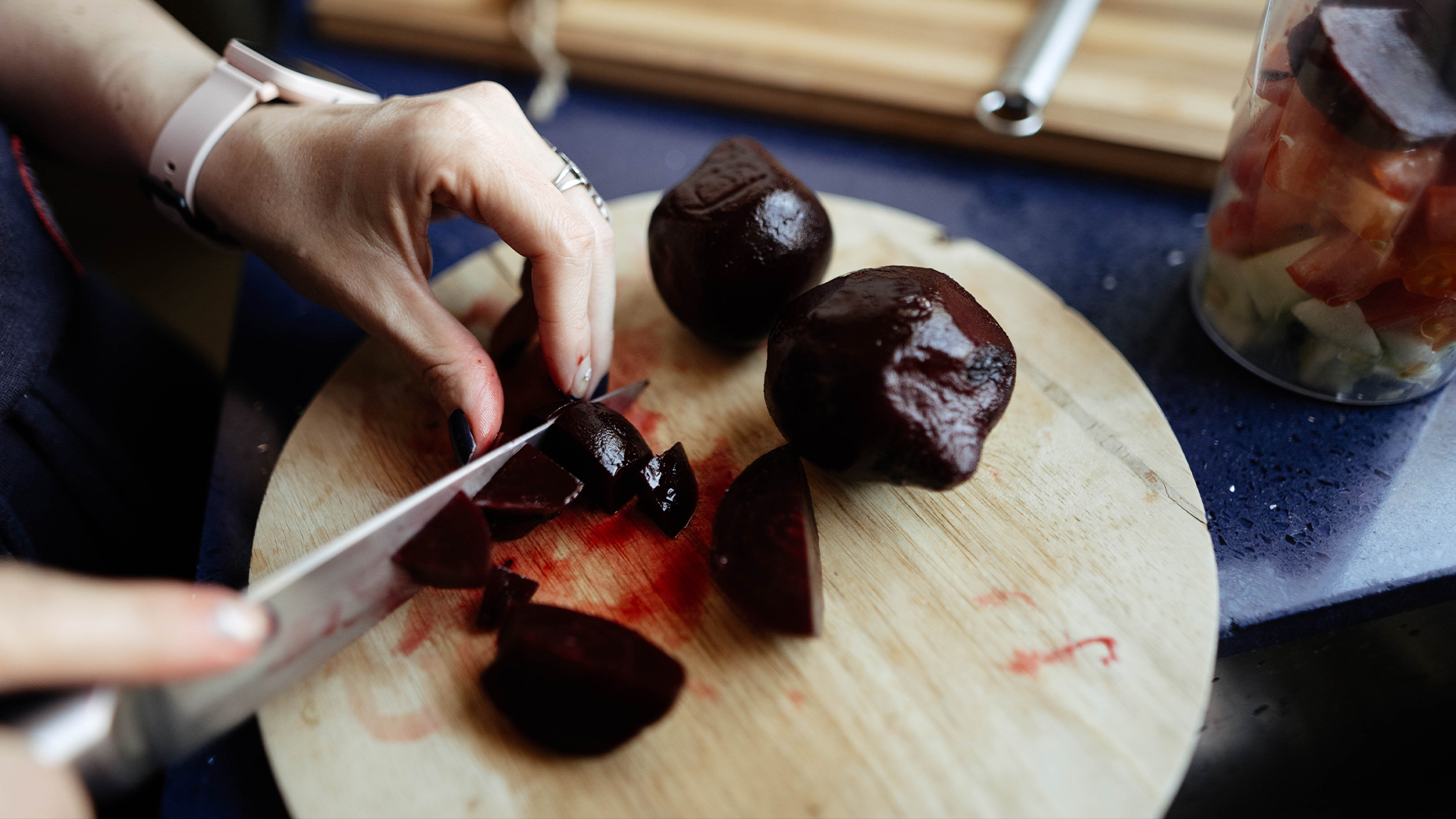Why do beets turn your poop and pee red?
After you've eaten beets, your poop and urine can take on a shocking red or pink color — but why?

Get the world’s most fascinating discoveries delivered straight to your inbox.
You are now subscribed
Your newsletter sign-up was successful
Want to add more newsletters?

Delivered Daily
Daily Newsletter
Sign up for the latest discoveries, groundbreaking research and fascinating breakthroughs that impact you and the wider world direct to your inbox.

Once a week
Life's Little Mysteries
Feed your curiosity with an exclusive mystery every week, solved with science and delivered direct to your inbox before it's seen anywhere else.

Once a week
How It Works
Sign up to our free science & technology newsletter for your weekly fix of fascinating articles, quick quizzes, amazing images, and more

Delivered daily
Space.com Newsletter
Breaking space news, the latest updates on rocket launches, skywatching events and more!

Once a month
Watch This Space
Sign up to our monthly entertainment newsletter to keep up with all our coverage of the latest sci-fi and space movies, tv shows, games and books.

Once a week
Night Sky This Week
Discover this week's must-see night sky events, moon phases, and stunning astrophotos. Sign up for our skywatching newsletter and explore the universe with us!
Join the club
Get full access to premium articles, exclusive features and a growing list of member rewards.
After you eat beets, you may get a shock when visiting the restroom: Your poop looks slightly pink, or sometimes dark, berry red.
This rather unnerving experience may make you wonder, "why do beets turn your poop red?"
The answer lies in betanin, the reddish-purple pigment that gives red and purple beets their vibrant color, Whitney Linsenmeyer, an assistant professor of nutrition and dietetics at Saint Louis University in Missouri and a spokesperson for the Academy of Nutrition and Dietetics, told Live Science by email. The same pigment is not found in golden beets, which instead contain yellowish pigments called betaxanthins.
Betanin is not only a pigment but also a strong antioxidant, meaning it can neutralize reactive molecules called "free radicals" in the body. By stabilizing free radicals, "it may help prevent damage to DNA and other cells and is also considered to have anti-inflammatory properties," Linsenmeyer said.
Related: Nine benefits of antioxidants: From disease prevention to healthy aging
However, betanin has a low bioavailability, meaning little metabolized betanin enters the bloodstream, so the body can't make full use of the compound. The pigment is highly resistant to digestive processes, and only a fraction of the betanin we consume can get absorbed by the cells in the gut, Linsenmeyer said. Lab-dish and animal studies suggest that roughly half of the ingested betanin gets broken down, mainly in the intestines, according to a 2021 review published in the journal Molecules.
Ever wonder why some people build muscle more easily than others, or why freckles come out in the sun? Send us your questions about how the human body works to community@livescience.com with the subject line "Health Desk Q," and you may see your question answered on the website!
Betanin that is not broken down by the body passes through the digestive tract largely intact. That means it may end up excreted with poop, turning it red or pink as a result. "This is a normal reaction observed in about 1 in 10 people," Linsenmeyer said.
Get the world’s most fascinating discoveries delivered straight to your inbox.
This widely cited statistic likely comes from a 1963 study, which suggested that 10% to 14% of people experience "beeturia," a phenomenon where beets turn your urine red or pink. Beeturia happens when unmetabolized betanin passes through the kidneys and into urine, but it's often accompanied by betanin turning a person's poop reddish, as well. So the two phenomena are closely linked.
"It is considered a benign condition that may persist for a few hours after the meal," Linsenmeyer said of beeturia.
Some studies initially suggested that a person's likelihood of experiencing beeturia might be linked to genetic factors or to iron deficiency, but more recent studies have concluded that the effect is more likely caused by the body's limited ability to metabolize betanin, according to the 2021 review.
"If you notice discolored urine several days later, however, this is not likely caused by eating beets and warrants a call to your doctor," Linsenmeyer said. Urine with a persistent red or pink color can indicate presence of blood, and according to Penn Medicine, bloody urine is a common sign of structural abnormalities or diseases within the urinary tract.
The exact time it takes for beets to turn your poop red can depend on how long it typically takes you to digest food. If you're concerned about your stool turning a reddish color, doctors can test a sample to rule out the presence of blood, and along with that exam, they'll likely ask if you've recently eaten something that might have turned your poop pink, according to the National Library of Medicine's MedlinePlus.
This article is for informational purposes only and is not meant to offer medical advice.

Anna Gora is a health writer at Live Science, having previously worked across Coach, Fit&Well, T3, TechRadar and Tom's Guide. She is a certified personal trainer, nutritionist and health coach with nearly 10 years of professional experience. Anna holds a Bachelor's degree in Nutrition from the Warsaw University of Life Sciences, a Master’s degree in Nutrition, Physical Activity & Public Health from the University of Bristol, as well as various health coaching certificates. She is passionate about empowering people to live a healthy lifestyle and promoting the benefits of a plant-based diet.
 Live Science Plus
Live Science Plus










